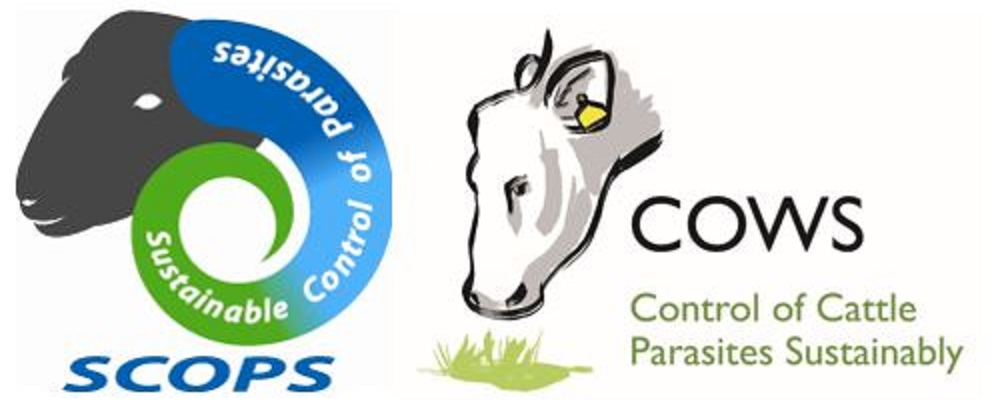Livestock farmers would traditionally be expecting to go into peak liver fluke season at this time of year – but experts in the Sustainable Control of Parasites in Sheep (SCOPS) and Control of Cattle Parasites Sustainable (COWS) groups say 2023 has been a very strange year in terms of weather patterns.
Speaking on behalf of COWS, Professor Diana Williams of the University of Liverpool says:
“2023 has been a funny old year. A very dry cold spring was followed by a hot early summer and then July and August were extremely wet. Top that off with the mini heatwave in early September accompanied by heavy rain, and it is fair to say there will be an impact on levels and timing of the risks faced by grazing livestock this season.”
The provisional autumn NADIS fluke forecast, based on local weather patterns, is generally predicting a low to medium risk, with the usual exception of high-risk hotspots in Scotland. This is almost certainly due to how dry it was at the start of the year and, while recent months may have been ideal for the fluke and snail lifecycles, the total window for their development has still been relatively short.
Professor Williams continues:
“Liver fluke and its intermediate host, the mud snail Galba truncatula, require temperatures of more than 10oC to remain active and continue development, so if we have a warm autumn and early winter the risk may still increase later in the year, particularly if the conditions also tempt farmers to keep their livestock out later.
“The serum antibody ELISA test, which is done on blood samples taken from 10 individuals is an extremely valuable tool in these circumstances. Using this test, we can monitor lambs or calves born in 2023 to look for evidence of exposure to liver fluke. Repeated at regular intervals, this not only means we can check for exposure but also when that exposure occurs, which reduces the risk of unnecessary or mistimed treatments.”
Speaking on behalf of SCOPS, independent sheep consultant Lesley Stubbings says:
“Anecdotally, we’ve not seen much liver fluke across the country this year so far. In contrast, we have seen an increase in reported cases of haemonchosis in sheep, which is caused by the highly pathogenic roundworm Haemonchus contortus (also known as the Barber’s Pole worm). The conditions in the UK this summer and last summer have seemingly suited this worm, which is common in many tropical and sub-tropical regions of the world.
“Because clinical signs of anaemia, bottle jaw and weight loss can result from the blood-feeding behaviour of either liver fluke or haemonchus, this can be confusing. Differential diagnosis is all the more important and underlines the need to ‘Test, don’t guess’. If in doubt talk to your vet or RAMA/SQP about which are the most appropriate diagnostic tests to use for each parasite.”
Further information can be found on the SCOPS and COWS websites.
Experts for both SCOPS and COWS urge caution to any producers looking to use the ELISA test but thinking of trying to cut the cost by pooling blood samples rather than testing individuals.
Ms Stubbings explains:
“The sensitivity of a pooled test is much lower and may give a negative result even though one or more animals are positive. This means that tests need to be done more regularly (every 10-14 days) to try to ensure the exposure is not missed, which will probably cancel out any cost saving compared to individual blood testing every three to four weeks.”
- This press release is issued by National Sheep Association (NSA) on behalf of SCOPS. For more information contact Katie James, NSA Communications Manager, on 01684 892661 or katie@nationalsheep.org.uk.
- SCOPS is funded by AgriSearch, AHDB, Animal Health Distributors Association (AHDA), Animal Medicines Training Regulatory Authority (AMTRA), Hybu Cig Cymru (HCC), National Farmers Union (NFU), National Office of Animal Health (NOAH), National Sheep Association (NSA), Quality Meat Scotland (QMS) and Vetpol. These bodies are joined by a number of experts in parasitology and sheep health to form the SCOPS Steering Group. A full list is available at www.scops.org.uk.
- COWS is a voluntary initiative aiming to provide the best available, evidence-based information to the beef and dairy cattle industries in relation to the sustainable control of both internal and external parasites. More at www.cattleparasites.org.uk.

